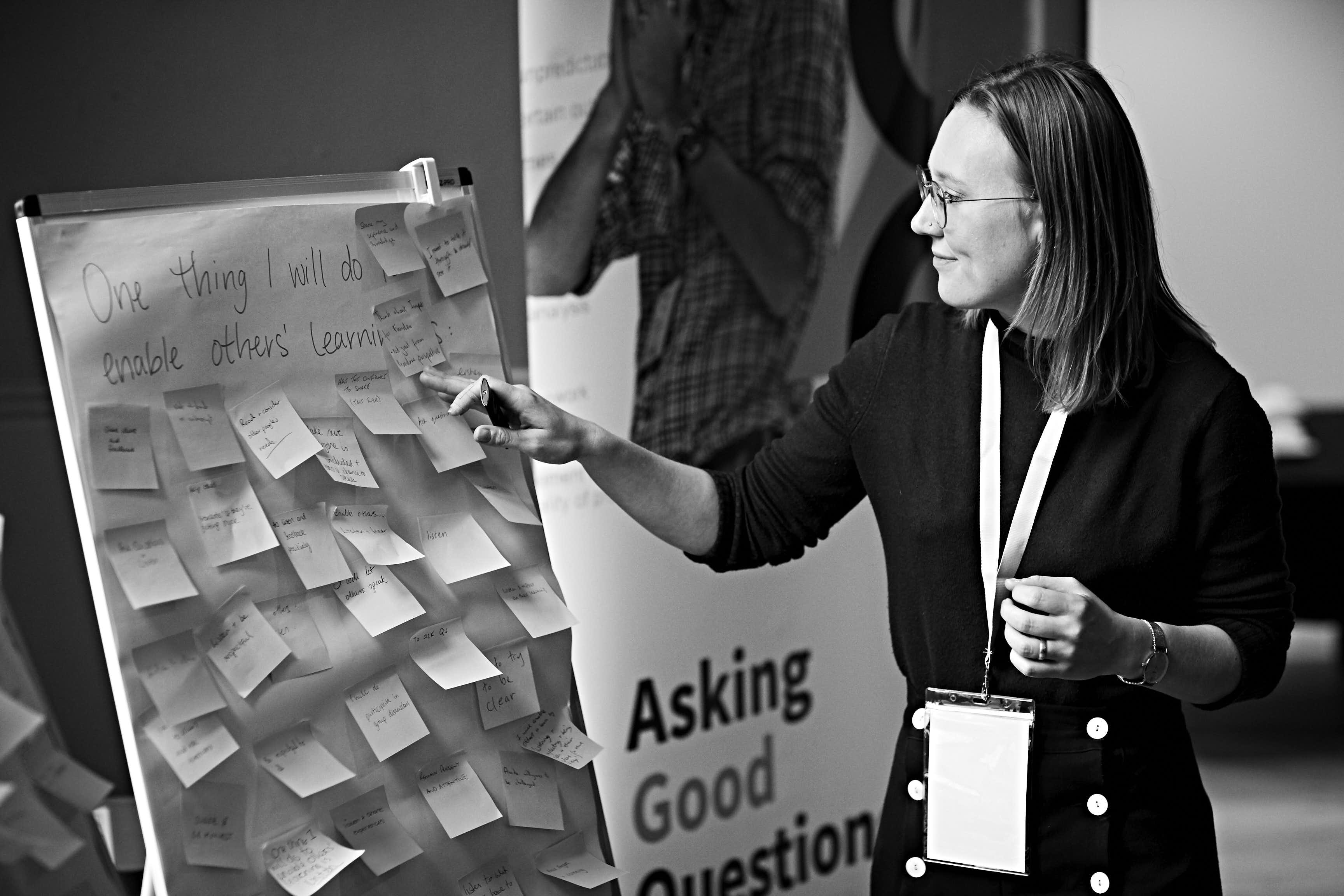Relationships cohort
Specifically, we are recruiting youth organisations in London that take a relational approach to their work. This means intentionally attending to relationships, and creating opportunities to support young people to form and sustain quality relationships. We are looking for practitioners in both targeted and open provision to take part in this Relationships Cohort, which builds on learning from our previous report, Can you bottle a good relationship?
Why participate?
This is an opportunity to:
- Develop your evaluation knowledge and practice including training on theory of change, evaluation planning, and data analysis
- Receive one-to-one coaching to support the development of your theory of change and evaluation plan
- Work with a cohort of peers from across the youth sector to explore how relationships can be better evaluated, understood, and attended to.
Time commitment from partners
- Webinars: three two hour workshops between February and April about incorporating relational practice into evaluation for all cohort participants to attend.
- One-to-One support sessions: Up to 2 optional 2-hour sessions to develop your theory of change and evaluation processes to include relational practice
- LabStorms: Up to two optional collaborative peer-to-peer problem solving sessions, run under Chatham House rules
- Data collection: we will work with a group of organisations to pilot a tool for measuring relational practice, likely The Search Insitute Framework for Developmental Relationships
- Feedback and insight: Provide feedback to the Centre throughout the process, which will inform a final learning report
Activity details and timeline
Webinars
These three webinars set out the principles and foundation from which all other activities in the programme are built. All cohort members will be required to take participate in all three workshops in order to access the other opportunities on offer through this programme.
The dates for the three webinars are:
Wednesday 17 February, 2:00 – 4:00pm - Describing relational practice in a theory of change
Wednesday 17 March, 2:00 – 4:00pm - Evaluation planning: Approaches to measuring relational practice for quality improvement
Wednesday 14 April, 2:00 – 4:00pm - Data analysis: generating and acting on insights about relational practice
LabStorms
LabStorms are collaborative problem-solving sessions designed to help generate and explore actionable responses to challenges with which organisations are wrestling. They are an approach developed by Feedback Labs, a US based consortium focused on identifying the best ways of using feedback to make programmes and institutions responsive to the needs of their constituents.
Conducted under Chatham House rules, LabStorms are designed to create deep discussions between stakeholders who value collective approaches to problem solving. Each LabStorm begins with an individual giving a 15 minute presentation that covers both their work in general and details of a specific challenge that they’re facing, with which they would like support and guidance. The presenter sets out what they've tried so far, and two-to-three specific questions that they would like help with from the attendees. Then, via a group discussion, attendees work together to support the presenter in finding answers or responses to their challenge. This can range from offering specific advice or suggestions to asking open questions in order to help the presenter reframe their questions and find new insight. While the discussion remains confidential, the learnings from each session are then written up and distributed for the wider community to benefit from.
A month before the LabStorm, we will do a call out for presenters and then work with you in advance to prepare for the session.
These sessions are limited to 10 participants and the dates and topics are:
Tuesday 23 February 2:00 – 4:00pm: maintaining relationships with young people while social distancing
Wednesday 5 May 10:00am – 12:00pm: rebuilding relationships with young people after lockdown
One-to-one Evaluation Support
You will be able to book in up to two one-to-one evaluation support sessions to work with a member of the Centre’s core team or one of our trusted associates to apply learning from the webinars to your organisation’s evaluation practice.
These sessions can be booked from March onwards, following the evaluation planning webinar.
Data Collection
Organisations who wish to take part in piloting a tool to measure the quality of relationships aligned with The Search Insitutues Developmental Relationships Framework. This framework is closely aligned with the Centre’s report Can you bottle a good relationship? and also the domains of a theory of change for developing high quality relationships with young people that was drafted within the programme in 2020.
Data collection will commence in late Spring and run through the summer holidays. Organisations taking part in this pilot will be supported to implement the tool, as well as take part in shared learning workshops.
Insight generated will feed into the final learning report to be published in Autumn 2021.
How to join
Please complete this registration form no later than the 25 January. We may follow up your application with a phone call to confirm your interest and organisational capacity to take part.
If you have any questions please contact Mary McKaskill: mary.mckaskill@youthimpact.uk.

